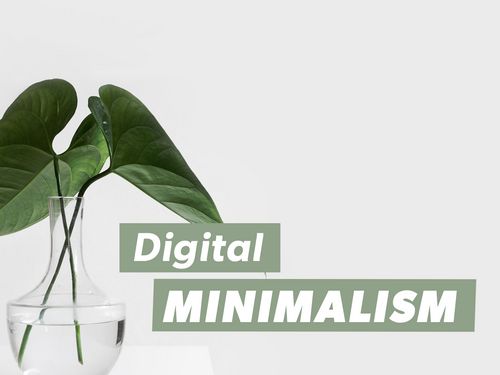How to increase productivity and happiness by becoming a digital minimalist
Jun 14, 2021 · 12 mins read
0
Share

What is digital minimalism?
The world has changed since the first iPhone was released in 2007. The smartphone has transformed the way many of us live. We’re always “on”, always reachable, forever checking and refreshing.
Save
Share
Long hours spent on social media, staring at a phone during dates and family reunions, or texting while driving – these are abnormal, extreme behaviors. We just don’t see them this way because they’ve become so common.
Save
Share
If you’d like to reclaim your life by radically reducing the time you spend online, you may be interested in “digital minimalism”, an idea promoted by computer science professor and popular blogger Cal Newport.
Save
Share
His book Digital Minimalism: Choosing A Focused Life in a Noisy World, is a manifesto for reclaiming your life from the online giants that make fortunes from your attention.
Save
Share
Newport defines digital minimalism as a philosophy of technology that’s about focusing on a small number of very important things while gladly giving up everything else. It’s based on three principles: the cost of mental clutter, optimization and intentionality.
Save
Share
Digital minimalists understand that the real value of most electronic devices, apps and websites isn’t enough to justify the large investment of time and energy we make in them. We have to analyze the costs and benefits of technologies before we make them part of our life.
Save
Share
Newport admires Henry David Thoreau, who spent two years in a small cabin in the woods near Walden Pond in Massachusetts. Thoreau’s 1849 book Walden describes the experience of “living deliberately.”
Save
Share
Thoreau realized that by hiring out his labor for one day a week, he could cover all his basic needs and live at a very low cost. The bulk of his time could then be spent reading, writing, and enjoying nature.
Save
Share
Most people had to work hard, maintain assets and be constantly stressed, only to afford some luxuries to make it all seem worthwhile. In short, Thoreau said, they endured lives of “quiet desperation.”
Save
Share
Cal Newport compares these 19th-century workers to modern people who spend 10 hours a week on social media just to obtain a few “likes”, the odd laugh or nuggets of news. A cost-benefit analysis would show they were squandering their precious time.
Save
Share
0